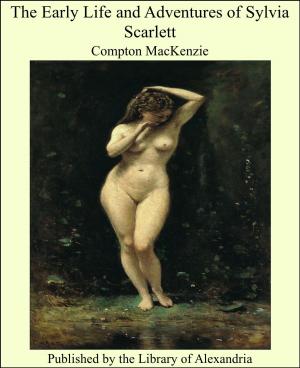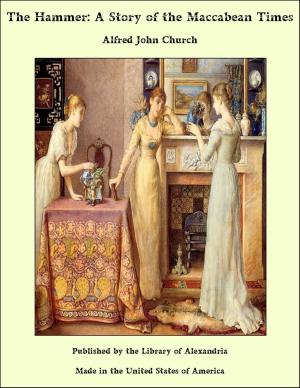| Author: | Thomas Wilkinson Speight | ISBN: | 9781465621689 |
| Publisher: | Library of Alexandria | Publication: | March 8, 2015 |
| Imprint: | Language: | English |
| Author: | Thomas Wilkinson Speight |
| ISBN: | 9781465621689 |
| Publisher: | Library of Alexandria |
| Publication: | March 8, 2015 |
| Imprint: | |
| Language: | English |
My Dear Phil.--By this post I send you a copy of a certain penny weekly journal entitled The Family Cornucopia, which, for lack of something better to read, I picked up the other day at a bookstall while on my way to the beach. Naturally, you will at once say to yourself (for you cannot deny, dear, that you occasionally express yourself with somewhat unnecessary emphasis over trifles), 'What the dickens does the girl mean by bothering me with her trumpery penny rubbish?' Well, that is just the point about which 'the girl' is going to enlighten you. "Of course you have not forgotten 'The Loudwater Tragedy,' as most of the newspapers called it at the time (although some there were who wrote of it as the 'Merehampton Mystery'). Neither, perhaps, has it escaped your memory how, with the object of helping to interest and carry out of herself for a little while, a young woman who, just then, was staying at a dull Devonshire village with the captious, but much-to-be-pitied, invalid in whose service she was, you wrote her a number of letters, dated from the very roof under which the tragedy in question had been enacted, in which you recapitulated for her information all the details of the crime as gathered by you on the spot; nor how you sketched for her the old mansion and its inmates, with the view from its windows, and all the quaint features of the sleepy little seaport, so that, after a time, she could almost have persuaded herself that what you had written formed a part of her personal experiences. If you have forgotten those letters, I have not. Yesterday I refreshed my memory by reading them again, and the reason I did so is this. "In the periodical I am sending you there is an article extending over five pages, entitled, 'How, and Why' which, strange to say, not merely seems to be based on the Loudwater Tragedy, but, under the guise of fiction, tells the story of the crime down to its minutest details; and not only does that, but, with almost photographic fidelity, limns for its readers the portraits of the various persons who were in any way mixed up with that mysterious affair.
My Dear Phil.--By this post I send you a copy of a certain penny weekly journal entitled The Family Cornucopia, which, for lack of something better to read, I picked up the other day at a bookstall while on my way to the beach. Naturally, you will at once say to yourself (for you cannot deny, dear, that you occasionally express yourself with somewhat unnecessary emphasis over trifles), 'What the dickens does the girl mean by bothering me with her trumpery penny rubbish?' Well, that is just the point about which 'the girl' is going to enlighten you. "Of course you have not forgotten 'The Loudwater Tragedy,' as most of the newspapers called it at the time (although some there were who wrote of it as the 'Merehampton Mystery'). Neither, perhaps, has it escaped your memory how, with the object of helping to interest and carry out of herself for a little while, a young woman who, just then, was staying at a dull Devonshire village with the captious, but much-to-be-pitied, invalid in whose service she was, you wrote her a number of letters, dated from the very roof under which the tragedy in question had been enacted, in which you recapitulated for her information all the details of the crime as gathered by you on the spot; nor how you sketched for her the old mansion and its inmates, with the view from its windows, and all the quaint features of the sleepy little seaport, so that, after a time, she could almost have persuaded herself that what you had written formed a part of her personal experiences. If you have forgotten those letters, I have not. Yesterday I refreshed my memory by reading them again, and the reason I did so is this. "In the periodical I am sending you there is an article extending over five pages, entitled, 'How, and Why' which, strange to say, not merely seems to be based on the Loudwater Tragedy, but, under the guise of fiction, tells the story of the crime down to its minutest details; and not only does that, but, with almost photographic fidelity, limns for its readers the portraits of the various persons who were in any way mixed up with that mysterious affair.















